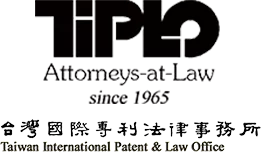FTC Prescribed Guidelines for Handling Unfair Trade Practice Cases Arising from Promotional Advertising.
E100729Y4 Aug. 2010(E129)
The FTC committee meeting adopted the Handling Guidelines for Cases Involving Promotional Advertising in conclusion of its 977th meeting of 28 July 2010. The Guidelines will be announced upon completion of the required procedure.
According to the FTC, promoting sale of goods or services by way of advertising is common business practice and it is likewise common for the practice to invoke consumer claims or unfair trade practice complaints. The FTC therefore prescribed the Guidelines with a view to regulating the relevant practices according to its experience in disposing unfair competition/trade complaints arising from promotional advertisement.
The Guidelines lays down the general principles for enterprises to follow with respect to advertising. Enterprises are advised to truthfully represent the advertisement, make good planning, ready the availability of the product or service advertised, and fully disclose important terms of trade. The Guidelines also typifies known offending practices such as untrue representation about favorable conditions of trade or free gift, untrue representation of the price offered being the most favorable market price with a view to maintaining fair trade order by informing enterprises of various irregular practices and possible violation of law to avoid.
The Guidelines
1. Purpose
These Guidelines are established for the purpose of maintaining fair trade order and protecting consumers’ rights and interests by keeping enterprises informed of irregular advertising practices that could lead the consuming public to form mistaken belief and result in unfair competition.
2. Definition
The term promotional advertising used under these Guidelines means the advertising made to attract consumers thereby increase the opportunities of trade of the goods (service) advertised with expressed representations regarding, for example, special offers (with availability time or amount limited) or offers of favorable programs such as special price, discount, installment payment program, free samples on request, “buy one get one free”, etc..
3. Truthfulness and consistency
The enterprise promoting sale of its product (service) by advertising shall truthfully represent the product (service) in the advertisement and ensure the product (service) advertised is consistent with the actual product (service) provided.
4. Good prior planning
The enterprise to run the advertisement shall thoroughly consider, properly plan and be prepared in advance to ensure truthful performance of the representation it is to make in the advertisement initiated by itself or in joint efforts without regard to the content of the advertisement being self-provided or not.
5. Ready availability
Absent an expressed limitation in the advertisement on the availability of the product or service advertised, the enterprise shall ready availability of the product (service) advertised to answer the demands for the product (service) received during the promotion period in line with the relevant representation given in the advertisement.
6. Full disclosure
The enterprise advertising its product (services) shall fully disclose such important terms of trade as may affect the consumer’s decision with respect to the transaction contemplated and avoid employing inappropriate mockup that may prevent the consumer from understanding the terms of trade or lead the consumer to form any mistaken belief or make any mistaken decision.
7. False, untrue or misleading representations
No enterprise shall make false, untrue or misleading representation of any of the following kinds for promotional advertising:
7(1) The favorable price or amount advertised are inconsistent with those actually provided, such as unavailability of the goods (service), the actual available amount is substantially less than the amount advertised, the actual amount available manifestly falls short of the reasonably expected amount demanded and no relevant information has been given in the advertisement.
7(2) The price, amount or other favorable terms of trade of the product (service) advertised are provided when and only when certain preconditions are met, certain encumbrances are accepted and/or certain time limit is observed, none of which, however, have been duly expressed in the advertisement.
7(3) The actual product (service) delivered is inconsistent with what is advertised
7(4) The content, amount, value of the actual gift/prize offered, the terms to compete for it (qualification, duration and method), draw lots date as represented in the advertisement are inconsistent with what is actually provided.
7(5) The gift, prize advertised are provided when and only when certain preconditions are met, encumbrances are accepted and/or certain time limit is observed, none of which, however, have been duly expressed in the advertisement.
7(6) The price of the product (service) is advertised as the lowest offered in the trade or otherwise represented to similar effects while the product (service) is not available to answer demands or the actual price provided is in fact not the lowest offered in the trade.
7(7) The content as advertised is applicable only in certain store, branch or place of business, which fact is not duly expressed in the advertisement.
7(8) The product (service) is advertised as scarce and limited in amount while the actual amount provided demonstrates the product (service) is readily available on demand.
7(9) The time limit represented in the advertisement is false and untrue.
7(10) The price offered is advertised as more favorable than the original price or market price while the representation regarding the original price or market price as given in the same advertisement for comparison is false, untrue or misleading.
7(11) No expression of limitation is given in the advertisement on the use, validity term, scope of the coupon or discount ticket that is provided (if any) upon attainment of a defined amount of purchases and the consumer is accordingly led to form mistaken belief with respect to the value of the coupon or discount ticket.
8. Comparative advertising
Comparative advertising must contain no false, untrue or misleading representation or symbol against the product (service) provided by another person.
9. Consequence of irregular practices
Any enterprise engaged in any of the practices provide in paragraph 7 may be regarded to have acted in violation of Article 21 of the Fair Trade Act.
Any enterprise engaged in the practice provided in paragraph 8 may be regarded to have acted in violation of subparagraph 3 of Article 19, Article 22 or Article 24 of the Fair Trade Act. (2010.07)
/EMA














